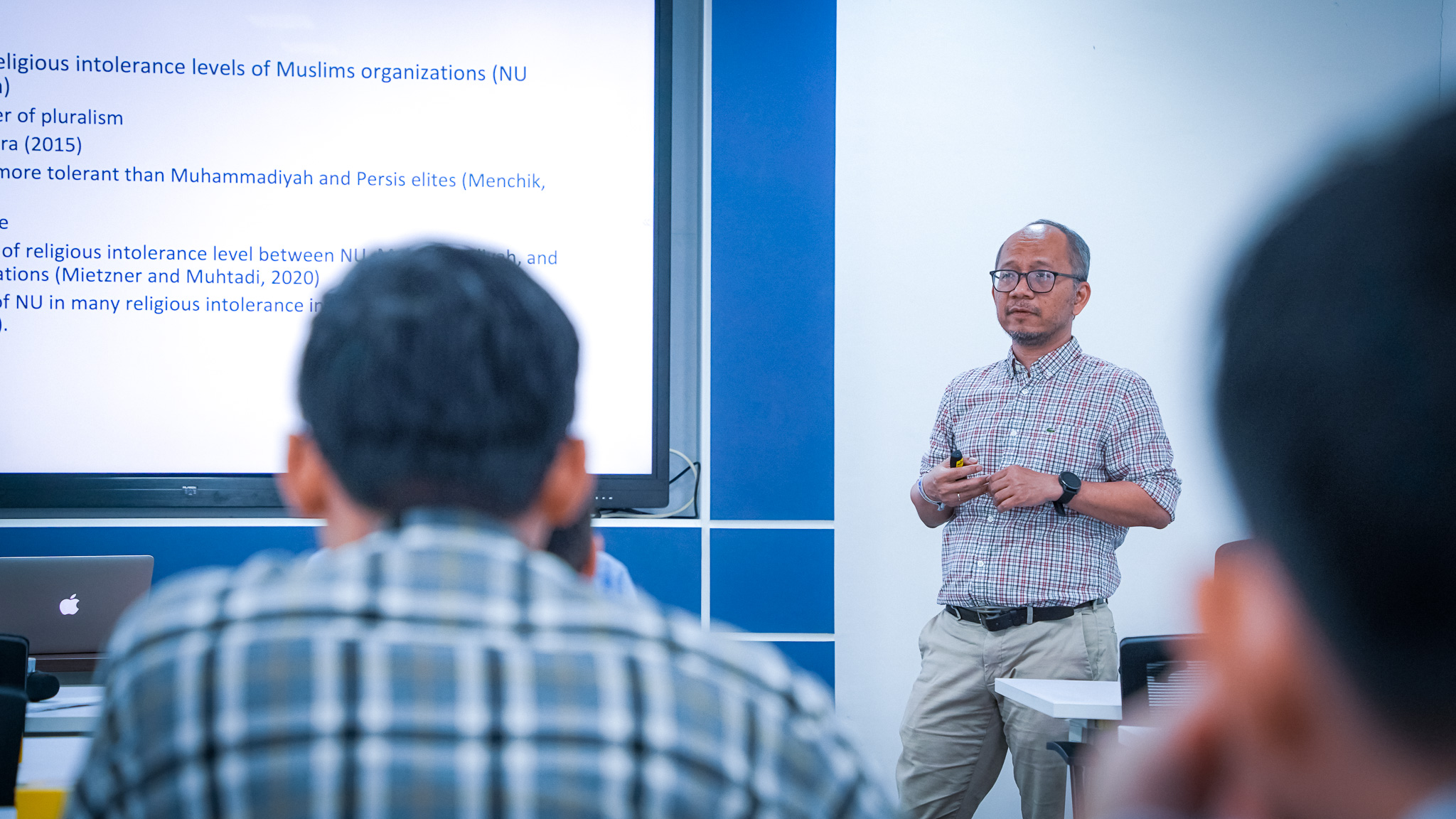Dr. Gail Bretan on Jewish Pluralism in America: A Guest Lecture at UIII’s FoE
September 13, 2023
Contributor: Maroof Ahmed | Editor: Supriyono

On June 8, 2023, the Faculty of Education (FoE) at Universitas Islam Internasional Indonesia (UIII) had the honor of inviting Dr. Gail Bretan, Associate Chaplain for Jewish Life at Wake Forest University, Winston-Salem, NC, USA, for an online guest lecture. The title of her insightful lecture was "Insider's View of Being a Jewish Woman in America: A Pluralistic Perspective".
Dr. Bretan serves an essential role at Wake Forest University (WFU), collaborating with the Office of the Chaplain to support the religious and spiritual needs of the community. She provides pastoral leadership to Jewish students, staff, and faculty, offering a diverse range of opportunities for worship, prayer, mentoring, and counseling. As she explained, she represents the Jewish tradition as part of the Office of the Chaplain staff, with a focus on "educating all," facilitating "service to the entire WFU and general community," and “sharing Jewish tradition(s).”
Additionally, she advocates for the spiritual and logistical needs of Jewish students at WFU and nurtures their curiosity about the broader Jewish tradition in its theological, pastoral, and cultural dimensions. One significant aspect of her work involves resourcing the Wake Forest Hillel, part of the world's largest and most inclusive Jewish campus organization. Hillel supports and inspires over 140,000 Jewish students at 850 colleges and universities each year.
In her lecture, Dr. Bretan explored the pluralistic nature of being Jewish in America. She detailed the various American Jewish movements, from Orthodox, Conservative/Masorti, Reform, and Reconstructionist to non-denominational, post-denominational, and trans-denominational movements, outlining the distinct elements of each. She also highlighted Secular Humanistic Judaism, founded in the 1960s, describing it as a movement that aligns itself more with humanistic than atheistic values.
Quoting George Washington's 1790 letter to the Newport, Rhode Island Jewish community, Dr. Bretan reaffirmed the enduring relationship between Jewish tradition and American life. “May the children of the Stock of Abraham, who dwell in this land, continue to merit and enjoy the goodwill of the other Inhabitants,” she quoted.
Reflecting on her personal journey, Dr. Bretan narrated her life story, emphasizing the importance of education, lifelong learning, and the influences of Jewish philosophy on her life. Born to Jewish parents with Hungarian, Romanian, and Polish roots, she has lived in several cities, each with a distinct way of being Jewish and American. Her rich personal experiences shape her approach to Judaism, enhancing her role as a spiritual leader and interfaith connector at Wake Forest.
The lecture then delved into the Jewish tradition of pluralism, cherishing and engaging with different ideas and perspectives. Quoting Leonard Levin, she underscored the value of deep, active listening, treating people as individuals, and the importance of engaging issues with honesty, sensitivity, and integrity.
“We can agree or disagree, knowing that we can learn from each other, but that a difference of opinion does not negate either view or either person. It is the text itself that unites us, as well as our shared commitment to that text and to one another as a community of learners,” she quoted.
Dr. Bretan concluded her lecture by emphasizing the legacy of interfaith dialogue, underscoring the principles of non-judgmental inquiry, cultural humility, and the significance of sharing stories and connecting from a place of love. "True pluralism means everyone is somewhat uncomfortable. Each community decides its boundaries," she concluded, reinforcing the idea of learning and growing through interactions with diverse perspectives.
In her capacity as both a Jewish woman and an educationist, Dr. Bretan offered UIII’s community an illuminating perspective on the pluralistic nature of Jewish life in America. Her lecture was not only a testimony to her own enriching journey but also served as an enlightening guide to understanding the multifaceted nature of Jewish tradition, faith, and life.
- Dr. Nia Deliana Navigates India-Indonesia Maritime Softpower at Odisha Research Workshop
- UIII Extends Application Deadline for 2025 International Admissions
- UIII Embraces a Green Ramadan: A Month of Worship and Sustainability
- UIII Evaluates Quality Assurance System, Plans For New Study Programs
- Lost at Sea: UIII’s Dr. Nia Deliana Reveals the Silent Crisis of Sea Refugees
- The Qur’an in a Changing World: Prof. Sahiron Syamsuddin’s Visionary Lecture at UIII
- A Shared Mission of UIII and ICRC in Advocating International Humanitarian Law
- Hartford International University for Religion and Peace Signs MOU with UIII for Future Academic Partnership
- Professor Dian Masyita Honored as a Changemaker in Empowering Communities
- Bridging the Archipelago and the Nile


